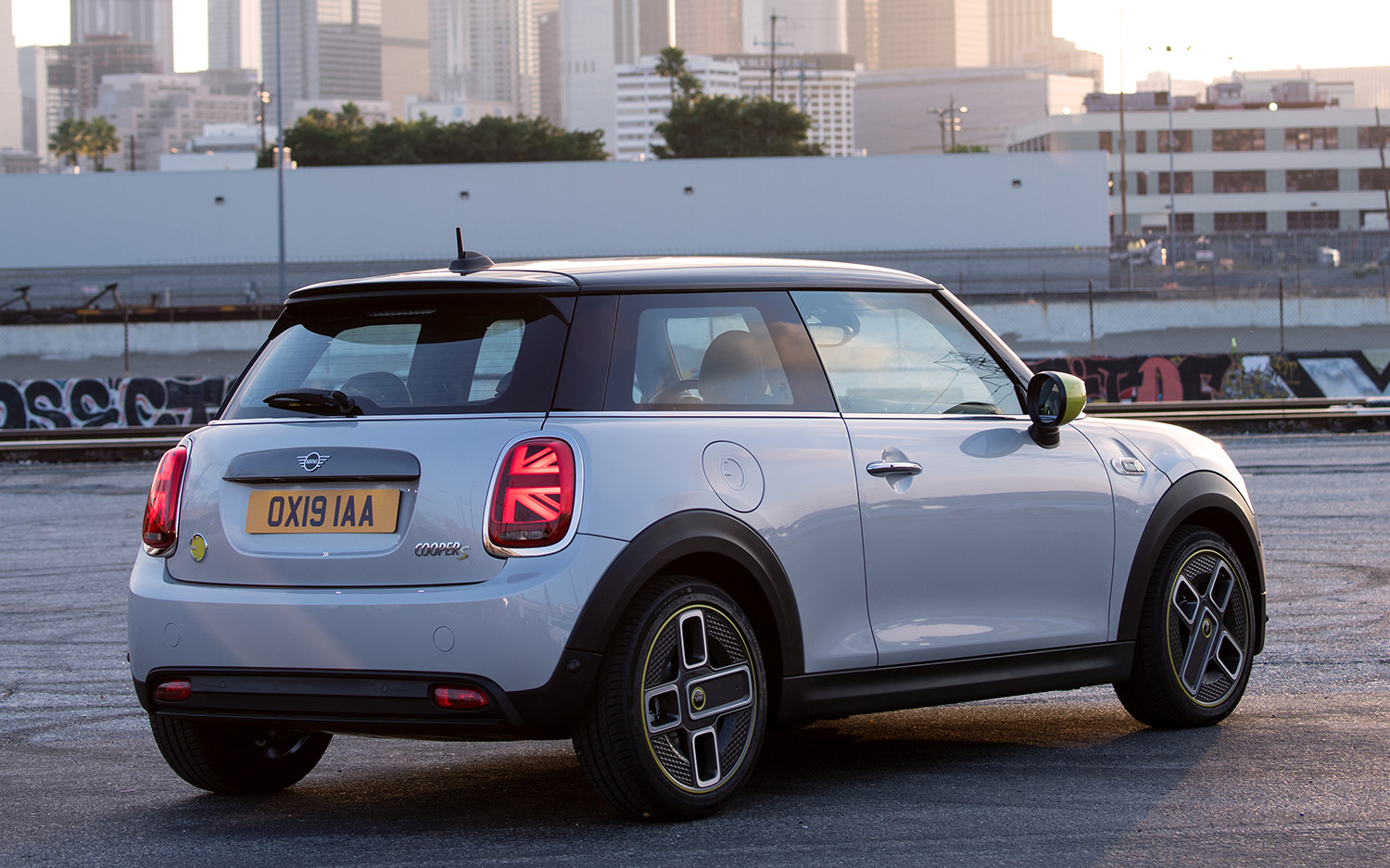Three-door Hatch BEV set to cost less than three million baht in Thailand.

Does it share the same drivetrain with the BMW i3?
After showing an all-electric concept car in 2017, Mini has finally revealed the production-ready model based on the three-door Hatch.
Dubbed Cooper SE, the Hatch BEV gets its power system from the BMW i3 including the 184hp/270Nm electric motor and 33kWh lithium-ion battery.
The Cooper SE goes from 0-100kph in 7.3sec before calling it the day at a limited 150kph. Range under the WLTP scheme is claimed at some 235km to 270km.
The E, Mini’s first-ever BEV produced 10 years ago but only for field trials, had a 204hp system, 8sec 0-100kph time and 251km range under the preceding NEDC measurement.

It seems a balance had to be achieved in the Cooper SE…
The Cooper SE is based around B-segment car dimensions which means that too much battery on board would have some repercussions in packaging and driving characteristics.
That explains why the range isn’t high as in some other BEVs like the bigger Audi E-tron, Jaguar I-Pace and Mercedes-Benz EQC, all capable of around 400km and housing twin electric motors driving all four wheels.
The front-drive Cooper SE has been conceived as a city car where potential users are most likely to be content with under 300km. It’s the same case for the upcoming Honda E.
Despite needing to lift the floor in the Cooper SE by 18mm to accommodate the battery pack, Mini claims that boot space remains the same as in the ICE-powered counterpart. The maker also assures unaffected levels of driving fun.
The Cooper SE has some distinctive details like the sassy wheels, closed front grille, standard LED lights and playful yellow hues on both the exterior and interior.

*Is it really coming to Thailand?
For quite some already, executives of Mini Thailand have expressed their desire to sell an all-electric Mini. A plug-in hybrid version of the Countryman has been available in other markets for two years, but it has never been offered to Thai buyers.
Thanks to special excise taxation of 8% (4% if built in the country), the Cooper SE probably won’t cost as much as the petrol-powered 192hp Cooper S, whose range is 2.71-2.85 million baht. The performance strata of the Cooper SE may also translate to a lower price point than the Cooper S.
Of course, the Cooper SE probably won’t be attracting as much attention as the cut-price MG ZS EV from the general car buyer, but it’s nearly half of what other luxury BEVs are asking for.
Global production of the Cooper SE starts in November meaning that Thai sales may kick off early next year.
